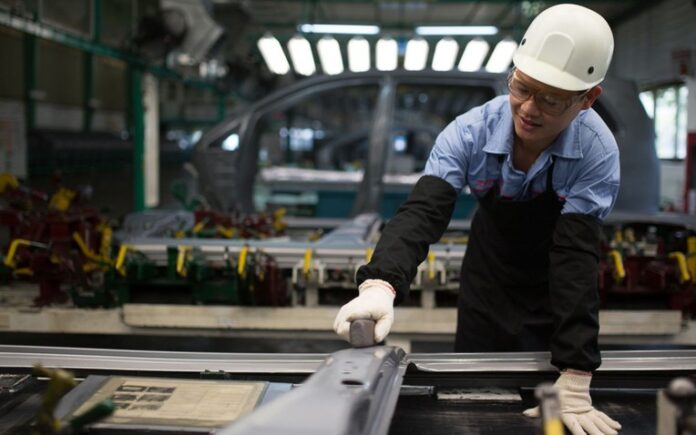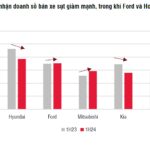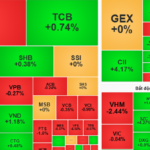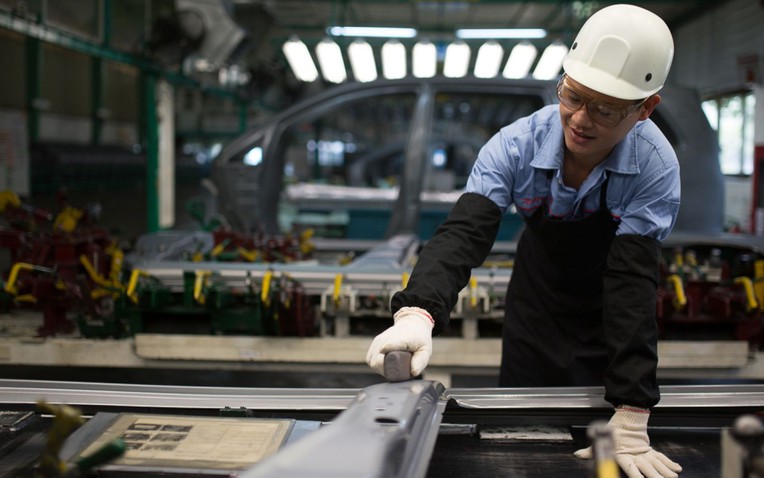
On May 11th, the Neotek Vietnam Industrial Company Limited inaugurated the construction of an automobile brake disc factory in Ham Kiem II Industrial Park, Ham Thuan Nam district, Binh Thuan province. The total investment capital for this project is 2.2 trillion VND (equivalent to 88 million USD), covering an area of over 13 hectares, and is expected to create jobs for approximately 1,000 laborers, according to Nhan Dan newspaper.
In 2025, the factory will be constructed on an area of 9.6 hectares and will be equipped with a rooftop solar power system. All equipment belongs to the newest generation and is mostly integrated with automated production capabilities.
In the next phase, the Neotek Vietnam Industrial Company Limited will build another factory on the remaining land to expand its business scale. In addition, the company plans to invite other brake system manufacturers to establish an automobile industrial cluster in Ham Kiem II Industrial Park.
Speaking at the ceremony, Mr. Nguyen Hong Hai, Vice Chairman of the Binh Thuan Provincial People’s Committee, stated that the completion and operation of this factory will contribute to the economic restructuring and the promotion of the processing and manufacturing industry in Binh Thuan province, creating jobs and improving the lives of the people. Binh Thuan province always considers the success of enterprises as its success. With the orientation of “good infrastructure, good human resources, good policies, and good public services,” Binh Thuan always welcomes and invites investors to explore and invest in the province.
The Vice Chairman of the Provincial People’s Committee requested that the People’s Committee of Ham Thuan Nam district coordinate with the Neotek Vietnam Industrial Company Limited and the investor of Ham Kiem II Industrial Park to ensure security, fire prevention, and environmental protection inside and outside the industrial park, creating favorable conditions for the construction and implementation of the project.
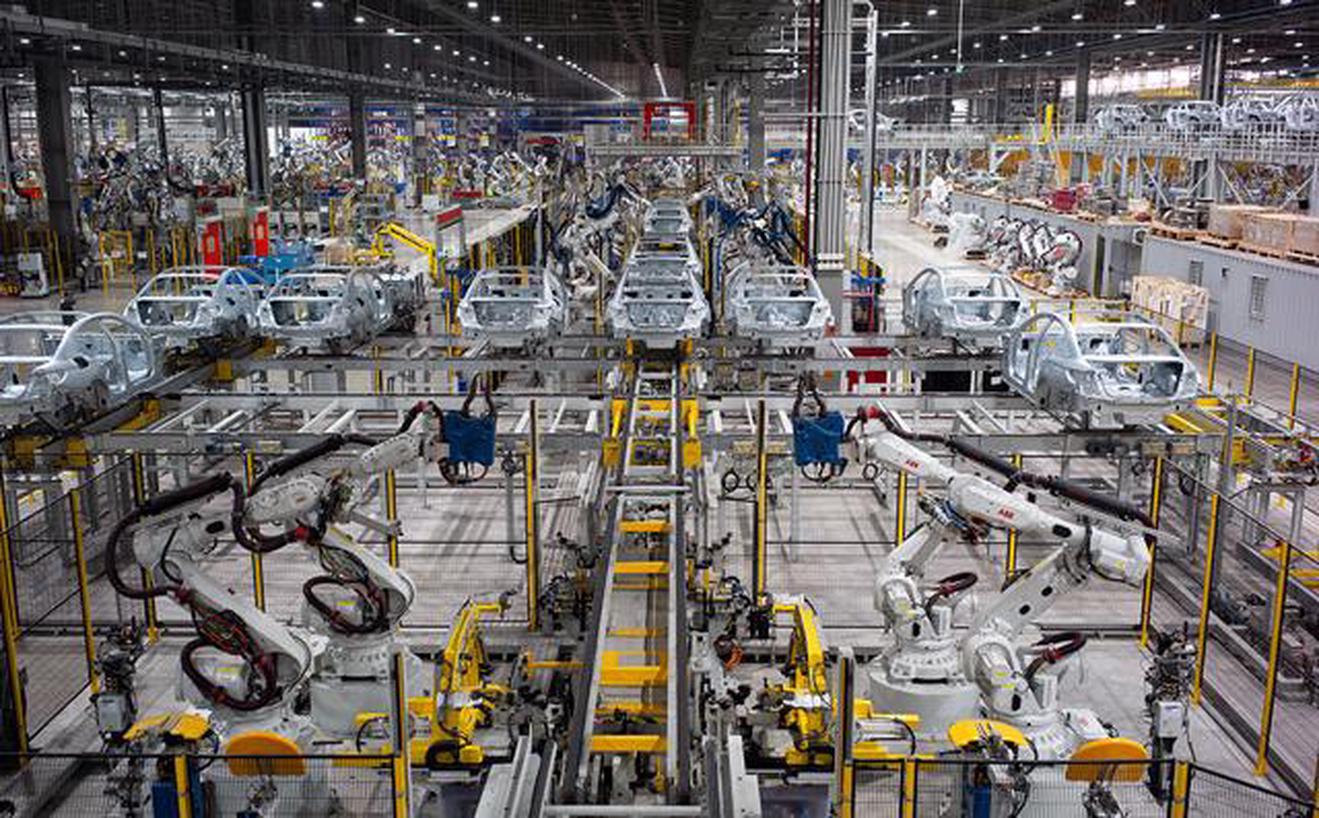
Currently, not many automobile components are produced domestically. Illustrative image.
At the same time, provincial departments, sectors, and branches are requested to support the Neotek Vietnam Industrial Company Limited in promptly completing related procedures and accelerating the construction progress to put the project into operation as soon as possible.
Vietnam’s automobile industry has a low localization rate
According to statistics from the Department of Industry (Ministry of Industry and Trade), the localization rate of Vietnam’s automobile industry is still low. Vietnam also has a number of enterprises participating in the automobile auxiliary industry and some enterprises participating in automobile assembly and manufacturing.
On average, a car consists of about 30,000 parts, ranging from simple to complex.
With the trend of smarter cars, each car today also contains many types of chips for computing tasks; on average, each car has about 1,400 types of chips and hundreds of other semiconductor components.
However, chip production in Vietnam has not yet met the requirements of manufacturers, leading to the import of this component. For the group of components and spare parts serving car assembly/manufacturing and repair, Vietnam imports up to 3.5 billion USD worth of products annually; among them, products with high technology and added value account for the majority.
Currently, there are fewer than 100 suppliers for the automobile industry at the first tier in Vietnam; there are about 150 suppliers at the second and third tiers. Statistics show that Vietnam has a total of 377 manufacturing enterprises related to automobiles, of which there are about 170 FDI enterprises (companies with foreign capital), accounting for up to 46.43%.
The statistics also show that Vietnam has more than 40 automobile assembly enterprises; for the production of car frames, bodies, or truck beds, there are 45 units, along with 214 units participating in the production of automobile spare parts/components.
This industry has a total of 1,221 products; industrial support products with medium and low technology account for the majority. These products are not very valuable and do not contribute much to the total value of a car.
Vietnam’s automobile industry currently has a low localization rate and is also lower than the planned rate – an average of 30% to 40% by 2020, 40% to 50% by 2025, and 50% to 55% by 2030. The actual average figure is only about 7% to 10%, much lower than other countries in the region – Thailand, Malaysia, and Indonesia, which have localization rates of about 65% to 70%, according to the Ministry of Industry and Trade.
Along with the low localization rate, domestically produced automobiles also have production costs that are 10% to 20% higher than those of other countries in the region. This is because not many components are produced domestically.
The Largest Auto Distributor in Vietnam Partners with Chinese Firm for a $170 Million Car Assembly Venture
Alongside the automotive assembly plant, Tasco and Geely will collaborate to attract additional investors to complete the supply chain of components and parts. They will also invest in the development of an R&D center for the automotive industry, catering to the Southeast Asian region.
Unleashing the Power of Domestic Auto Incentives
The Ministry of Industry and Trade has high hopes for the automotive market, targeting a scale of over 1 million vehicles per year by 2030, with a focus on supporting the development of electric vehicles. This ambitious plan aims to revolutionize the industry, and with it, the writing must also evolve to capture the imagination of the audience.
The First Time Vietnam is Handed Over Cutting-Edge Technology to Manufacture Automobile Engines
On August 23rd, Kim Long Motor Hue Joint Stock Company held a groundbreaking ceremony for its new engine manufacturing plant in the Chan May – Lang Co Economic Zone, Thua Thien Hue Province. This marks a significant milestone as it is the first time Vietnam has been entrusted with cutting-edge technology to independently produce modern automotive engines and powerplants for other industries.
Who Benefits the Most from the 50% Reduction in Car Registration Fees?
SSI Research predicts that while the automotive industry’s third-quarter revenue for 2024 may be impacted by consumers postponing car purchases in anticipation of promotional policies, pent-up demand will drive a strong rebound in the fourth quarter.

























